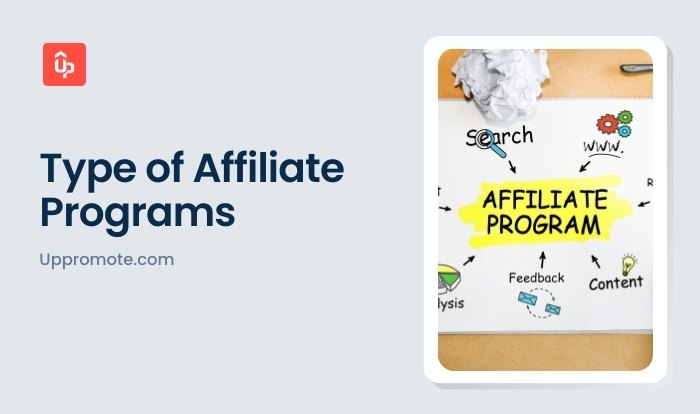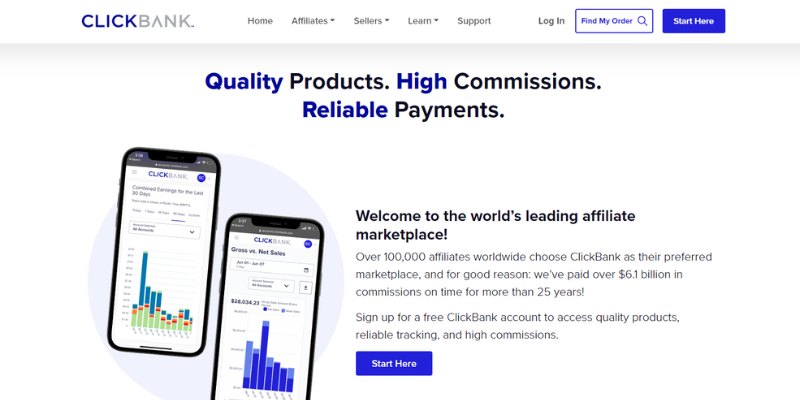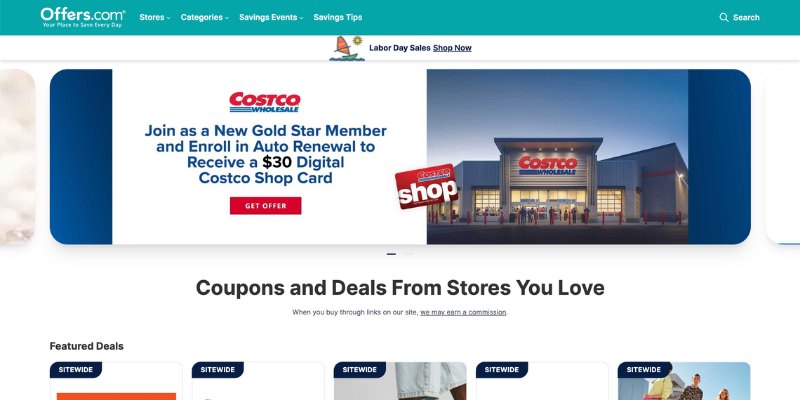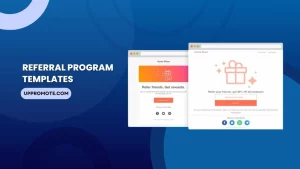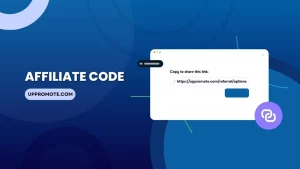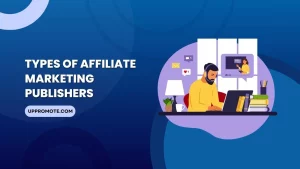Finding the right kind of affiliate partner to target is one of the first issues to overcome when launching a partner or affiliate program. It is best to properly plan your targeting since recruiting new affiliates takes up most of the effort when operating an affiliate business.
Your niche and items have a significant influence on affiliate recruiting. So, looking at your niche audiences and client base is a fantastic place to start.
In this article, Uppromote will give you an overview of those types of affiliate partners and discuss their properties.
8 Common Types of Affiliate Partners
Content affiliates
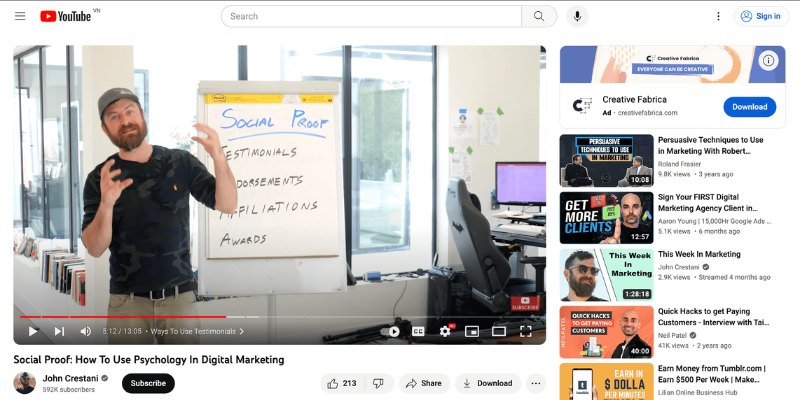
This type of affiliate partner includes bloggers, podcasters, and YouTubers. When you think about affiliate marketers, this is usually the first thing that comes to mind. Someone who has their own website or blog and writes tutorials, reviews, and product comparisons, for instance.
These affiliates often spend more time and effort advertising items in their industry and expanding their relevant audience since creating great content takes a lot of work.
Successful content affiliates understand how to utilize keywords with high buy intent and how to adapt to their wider audience’s demands. What items they should promote are determined by their target audience’s interests. As a result, they will always prioritize their audience.
In addition to revenue and leads, content affiliates offer you fascinating user-generated content (UGC) that is legitimate and useful for social proof. The value of user-generated content is based on genuine insights from individuals who have won the confidence of their audience.
Their content, which includes tutorials, instructions for use, product comparisons, and evaluations, must be able to develop into lead-generating magnets that attract both trials and conversions.
- Generate high-quality user-generated content (UGC) that is legitimate and useful for social proof.
- Help you create more engaging and informative content.
- Help you promote your products or services in a more creative and personalized way.
- Can be expensive to attract top content affiliates.
- May not be as effective in all niches or markets.
Agency partners
Your search for partners in a B2B affiliate marketing program should focus on those who can draw in business customers. This does not permanently exclude affiliates from promoting B2C items. But at least let prospective partners know that B2B sales cycles are often longer.
Agency partners have the most significant potential for producing third-party sales for a SaaS firm like Supermetrics. They have separate client networks that they may draw on in addition to being seasoned professionals who are experts in their field.
A marketing firm that offers its customers services like SEO (Search Engine Optimization) and PPC (Pay-per-click) and actively promotes your product to them is a typical agency partner in digital marketing. They often use email, direct messages, and word of mouth to spread the news about your services.
Many of your agency partners are knowledgeable brand ambassadors and your clients. And if they utilize your product, becoming associate partners implies they have a vested incentive in continuing loyal to your brand.
- Have independent client networks from which they can pull.
- Swiftly show their customers the benefits of your solution.
- Have a vested interest in keeping your brand loyal.
- Maybe less knowledgeable about your product than other affiliate kinds
- Don’t have as many resources as other categories of affiliates.
PPC affiliates
PPC affiliates are affiliate marketers who utilize paid advertisements to promote affiliate offerings to their target audience. They use their own money to construct marketing campaigns for affiliate goods. They are often paid just for conversions, as are most affiliates.
Not all affiliate schemes let their partners employ sponsored advertisements. The major worry is that you cannot control how these affiliate partners promote your items. By allowing affiliates to use your brand name as a keyword or link to your website directly, you risk them breaking the terms and conditions of your affiliate program.
This does not imply that no effective PPC type of affiliate marketing strategies exist. However, an organic base is always required first. An affiliate landing page that offers extra content, such as instructions, tutorials, reviews, comparisons, and other valuable resources.
PPC affiliates can sometimes assist you in covering less well-known platforms and regions that you have left out of your campaigns, even if you’re probably going to conduct your own advertising campaigns for your company. This broadens your brand’s reach while saving you money on advertising since your partners promote your items with their own money.
- Help you reach new audiences on lesser-known platforms and geographies.
- Help can save money on advertising.
- Support you in generating leads and revenues more rapidly.
- May not be able to influence how your items are advertised.
- Your partners risk breaking the rules of your affiliate program.
Social media influencers
Social media influencers are a subgroup of content affiliates with a devoted following on the platform. Their personal brand commands a following in one or more areas. They can help you drive conversions and spread the word about your items to their followers.
The second advantage comes in the form of a byproduct and helps you build brand recognition. However, the amount of followers may be deceiving at times, so it’s preferable to check how much interaction their posts get on average.
This category also includes key opinion leaders or KOLs. Even if the phrase refers to any prominent expert in their area, who is not necessarily pushing anything. KOLs are especially appealing to SaaS affiliate networks because mastering your profession is more essential than having a large social media following.
Product-influencer fit determines the value of hiring social media influencers in your affiliate program. The influencer’s voice should be consistent with your product. Unless the influencer’s audience is interested in your product, all the following and interactions are nothing.
- Support in the development of brand awareness.
- On these platforms, they can give social proof and attractive material.
- It’s critical to look at how much engagement their postings get on average.
- The voice of the influencer should be identical to your product.
Coupon websites
A B2C company in the quantity business model, such as one that has reached market saturation, is more appropriate for partnering with coupon sites. Discounts are appealing to any prospective buyer with a strong buying intent.
It’s a simple technique to increase sales for the retailer and the affiliate. However, it does result in lower margins. Most businesses also don’t want their partners to use discounts to hurt their direct sales and organic traffic.
If you are an affiliate manager, you want to ensure that your affiliates aren’t driving traffic to your site by making use of terms like “discount”, “coupon codes”, or “promo code.” You should concentrate on getting partners who can create incredible landing pages.
Moreover, always let your partners know the restrictions if you want to give promo codes to potential affiliates. For example, make it illegal for them to share the discount code elsewhere online. RetailMeNot and Offers.com are significant instances.
- Any potential customer with a strong desire to purchase is drawn to discounts.
- Coupon websites have a vast potential consumer base.
- May result in decreased margins.
- Some companies don’t want their business partners to exploit discounts in a way that reduces their direct sales and organic traffic.
Cashback websites
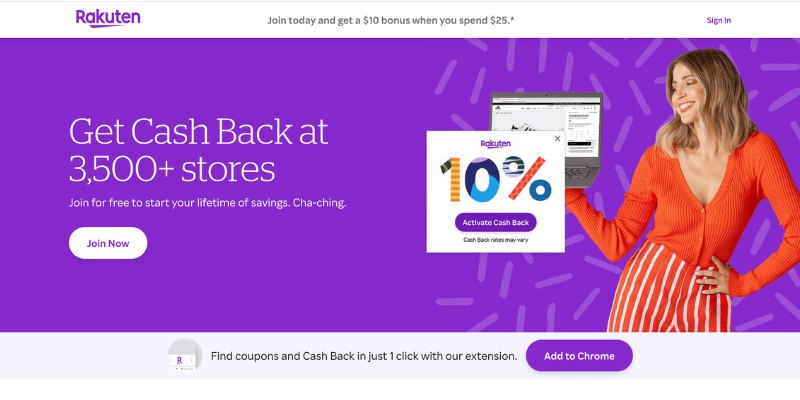
When a member purchases through the cashback website’s affiliate link, the cashback website pays the member a portion of its own affiliate commission as a reward.
In basic terms, the cashback sites used to get a commission on every transaction, but now they return a portion of their commission to the person who made the purchase. As a result, the publisher will get less money from each sale, but they are making more up for it by strongly enticing members to make transactions via different promotions and incentives.
Cashback is a revenue-sharing arrangement in which the affiliate website receives less from each commission since a portion is returned to the customer. Cashback affiliates, on the other hand, compensate for their lesser earnings by concentrating on quantity.
Cashback websites, like coupon websites, provide no added value except lower prices for customers claiming their cashback. That is why they are unpopular in B2B, where there are fewer prospective customers, and making sales needs more work. Permitting cashback affiliates could also harm your organic traffic and perception of your company, which would undoubtedly harm your long-term revenue.
- Has the potential to attract a large number of consumers
- Can be a low-cost strategy to sell your goods or services
- Affiliate partners may not make as much money per sale as other affiliates.
- Can hurt your company’s reputation and organic traffic.
Email marketers

Both content affiliates and agency partners often gather email addresses for various objectives, including types of affiliate marketing. Email marketer is seldom a distinct category because she/he often uses other marketing channels. However, it can be distinguished from other affiliate partners because of the unique characteristics of employing a list of emails for affiliate advertising.
Email affiliate marketing is about gaining advantages like other affiliate marketing channels. But none of this is free. Email affiliates with their own client base will undoubtedly want to make the best possible use of it by advertising just the best-suited affiliate promotions.
Affiliates should choose the indirect way of producing value rather than selling directly. You might contribute industry studies as well as other valuable information. For instance, you can create polls, surveys, competitions, and quizzes to interact with your subscribers.
Email affiliate marketing can be efficient in generating conversions if adequately targeted. You have access to a specific audience via your affiliate program, which is its key advantage. Affiliates don’t have to depend on Google traffic or keep up with algorithm upgrades to be at the top of keyword results.
- Not reliant on Google upgrades to its algorithms or traffic.
- If properly targeted, it may be effective in generating conversions.
- Building and maintaining an extensive email list can be time-consuming.
- Tracking the performance of email affiliate marketing campaigns can be tricky.
Review sites
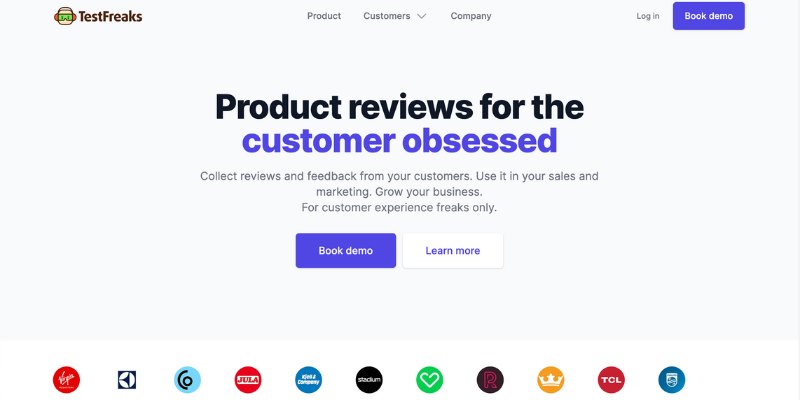
Review sites work well as affiliates in various areas, including dating, diet, telecom, hosting, software, and other services. Everywhere, individuals would be contrasting one firm with others. This is because consumers check for reviews on Google for firms that provide services, but it is also done with products.
A service-oriented business should have many affiliate review sites to profit from this trend. Affiliates from review sites may contribute significantly to the success of your affiliate program, mainly if they run PPC campaigns for keywords directly relevant to your products or business, like match.com or dating website reviews.
Depending on the search volume for these terms, these affiliates can be the primary producers in various affiliate programs.
Product reviews need both time and money. You must get the newest items to provide helpful material to your audience. The more quickly you evaluate hot-ticket products, the more money your advertisements and affiliate links will produce.
- Provide high-quality visitors to your website.
- Improve your SEO ranking.
- Purchasing things for review might be costly.
- Writing high-quality evaluations can take a long time.
How to Choose the Right Affiliate Partner?
Choosing an appropriate affiliate partner is critical to the success of any affiliate marketing strategy. Here are some aspects to consider before making your decision:
The products or services
Check to see if the an excellent match between the goods or services you’re marketing and your blog or website and your audience. Additionally, you should be knowledgeable about the good or service and confident in its quality.
The commission rates
You will get a commission as an affiliate based on the sale percentage. You should look for a program with a reasonable commission rate.
The monitoring system
Sales and payments are tracked using the tracking system. Ensure that the program you choose has a dependable tracking mechanism.
The cookie’s lifespan
After a visitor clicks on your affiliate link, a cookie will remain on their computer for the specified period of time, or “cookie lifetime.” The cookie lifespan must be long enough to offer your affiliate partners an opportunity to make affiliate commissions but not so long that it inhibits users from returning immediately to your website.
The affiliate assistance
The affiliate support personnel should be helpful and responsive. You need to be able to access prompt and dependable support if you have any concerns or questions.
The company’s reputation
Conduct some research to ensure that the firm you work with has a solid reputation. You can read reviews online or get suggestions from other affiliate marketers.

Moreover, if you have any questions about an affiliate program, contact the affiliate program manager to clarify queries. They are always willing to answer and support you in making the right decision.
FAQs
Q: What is the difference between affiliates vs affiliate partners?
A: An affiliate is known as a person or firm that advertises another company’s goods or services in return for a commission. They can do this through several platforms, including their website, social media, and email marketing. The formal affiliate partnerships between many firms are defined as affiliate partners.
The affiliate partner is often granted access to unique marketing tools and resources, and they might be expected to achieve particular performance requirements. In summary, affiliates tend to be more self-sufficient than affiliate partners.
Q: How do affiliate partners work?
A: Affiliate partners are individuals or organizations that advertise the goods or services of other businesses in return for a commission. They are often content creators who connect to the merchant’s website, such as blog entries, social media postings, or videos. The affiliate partner receives a commission when a visitor clicks on the link and purchases anything.
Q: How much do affiliate partners make?
A: Affiliate partners’ earnings vary based on various criteria, including the advertised product or service, the commission rate, the affiliate’s traffic, and the affiliate’s experience. According to ZipRecruiter, the average monthly revenue for affiliate marketers in the United States is $8,791.
Moreover, you can see the average commission rates for different products and services of some companies, such as Amazon (1-3%), software (10-50%), or lead generation ($10-100 per lead).
Conclusion
In summary, we’ve reviewed the most significant types of affiliate partners you’ll encounter while running an affiliate partner program.
Knowing about these various affiliate types and characteristics should assist you in analyzing your own network of present and future partners and developing a practical approach to building your program.
Focus your recruitment efforts on the affiliate partner categories that contribute the most to your affiliate sales.


